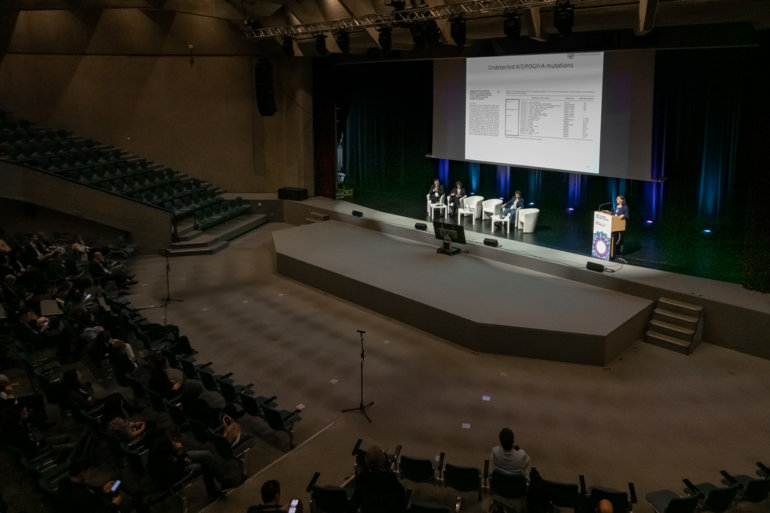A Spanish study describes the genomic characterisation of neuroendocrine neoplasms as the first step towards more personalised management
Until recently, few studies have provided data on the in-depth characterisation of the molecular landscape of neuroendocrine neoplasms due to their rarity, wide anatomical distribution and molecular and clinical heterogeneity (Mol Oncol. 2023 Feb 16. doi: 10.1002/1878-0261.13393). As reported at the ESMO Sarcoma and Rare Cancers Congress 2023 (Lugano, 20–22 March) in a Spanish study, next-generation sequencing of blood, tissue or both shows distinct patterns of genomic alterations in advanced neuroendocrine tumours (NETs) and neuroendocrine carcinomas (NECs), some of which were linked with prognosis (Abstract 34P).
In total, 40 NETs (75% grades 2 and 3) were sequenced including 16 located in the pancreas, 12 in the small intestine and six in the lung. The most frequently altered genes were MEN1 (n=11), DAXX (n=7), DNMT3A (n=4) and SMAD4 (n=3). Among 32 sequenced NECs (all grade 3), seven were located in the pancreas, six in the rectum, two in the colon and six were of unknown location. Compared with NETs, the most frequently altered genes were different in NECs and included TP53 (n=15), RB (n=8), MYC (n=6), KRAS (n=5), APC (n=7), SMAD4 (n=4) and FGFR1–4 (n=3). The median tumour mutational burden (TMB) was 3.46 and 4.45 (range 0–35) in NETs and NECs, respectively, while two NETs (5%) and four NECs (13%) had high TMB (at least 10 mutations/Mb). Only one NET and one NEC (both pancreatic) showed microsatellite instability.
In survival analyses, a significantly worse outcome was associated with KRAS (p=0.002), TP53 (p=0.012) and MYC (p=0.002) alterations and high TMB (p=0.004), providing clues for prognosis prediction and potential treatment targets. The investigators from Hospital Universitario 12 de Octubre, Madrid, Spain, report that further studies are underway to assess associations between genomic alterations, primary tumour location and treatment response.
Abstract discussed:
Antón Pascual B, et al. Genomic profiling of NEN patients: Prognostic and therapeutic relevance. ESMO Sarcoma and Rare Cancers Congress 2023, Abstract 34P
Poster Display Session, 21.03.2023, h. 12:10 – 13:10, Foyer (Ground floor)





